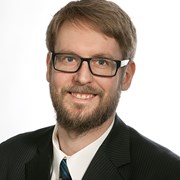This includes massive development of renewable energy production from solar/wind/hydro, electrification of transport, decarbonization of industrial processes and efficient transmission of electric power.
Power electronic converters is a key technology for conversion and control of electric power and will be crucial for successful electrification. The technology is rapidly evolving, providing much faster switching rates and higher voltages, in order to reduce complexity and increase efficiency compared to today’s solutions.
The faster switching and higher voltages result in steeper voltage shapes which introduce increased and different stresses internally in power components. These stresses initiate new and accelerate existing failure modes in the electric insulation of the power components, resulting in more severe ageing and deterioration of materials. The experience and knowledge built on conventional technology and stresses is not always relevant. Hence, new and more complex models and analysis on all levels from the material behaviour to component and system analysis are required to understand and predict the effects of faster power electronics.
The project will develop methods to measure and characterize the increased stresses power components are exposed to. SwoP will further investigate the acceleration of degradation, and initiation of new fault scenarios, that will emerge and ensure efficient and reliable electrification through increased implementation of fast power electronic converters.
The research will be conducted in cooperation with international industry within energy and electrification, and universities in Italy and Norway.

